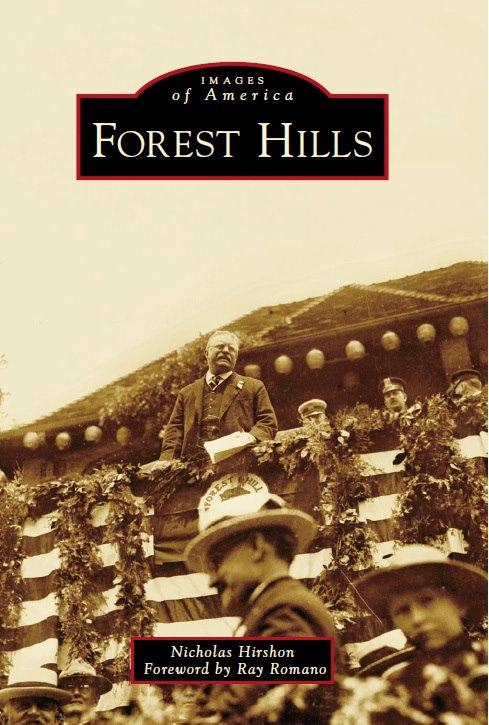Weezer
Hurley
(Rock)
3 out of 4 stars
Bill San Antonio
Sports Editor
When most guys go through mid-life crises, they usually buy a sports car or get a new haircut. Rivers Cuomo writes Weezer records.
Sure, the 40-year-old frontman has been making Weezer records for the better part of the last two decades, but never with the maturity and gusto of Hurley, the band’s latest effort and third album in as many years. Hurley is also the band’s first album away from Geffen Records, under which Weezer recorded its first seven studio albums.
On the record, Cuomo proves that he is still the prince of Nerd Rock, trailing only Elvis Costello, by pushing the hilarity of his lyrics and diversifying the band’s overall sound. While much of the album focuses on different aspects of growing up, there’s something oddly teenage about Hurley, right down to Cuomo singing about “crash[ing] a Diddy party in disguise” and reminiscing about the days “when Audioslave was still Rage.”
Hurley kicks off with “Memories,” the record’s leading single and an ode to the band’s younger days. Cuomo sings, “In fact we didn’t know what we were doing half of the time/We were so sure of ourselves and sure of our way through life.” A song of fond reflection, “Memories” features backing vocals by the cast members of MTV’s Jacka** as well as backing guitar from one of the show’s stars, Chris Pontius.
Though Cuomo writes about the darker side of the maturation into adulthood—the second track, “Trainwrecks” follows a rock band’s struggles to stay afloat financially without losing its sanity and others detail stories about failed relationships and lost friendships, again from a reflective standpoint to indicate the passage of time—he does so in a very light-hearted way, keeping his lyrics simple and flooded with references to pop culture.
In fact, Weezer may have taken the Hurley reference a bit too far. The album’s cover image is of
actor Jorge Garcia, better known as Hurley on ABC’s Lost. In addition, the band teamed up with clothing company Hurley to produce a clothing line to help promote the album.
The continued use of the keytar as a backing instrument as well as a major key change on the track “Where’s My Sex?” continue Weezer’s shift from a standard guitar-bass-drums band to a group becoming more self-aware in its musical arrangements and establishing itself furthermore as one of the giants of pop-punk
JoJo
Can’t Take That Away From Me
(Pop/R&B)
Adelle Platon
Entertainment Editor
3 out of 4 stars
Teen phenomenon JoJo proves she’s more than just a two-hit wonder with the release of a brand new mixtape entitled Can’t Take That Away From Me.
After a long hiatus from the music scene, JoJo, now a sophomore at Northeastern University, returns by giving fans an audible treat that showcases her tremendous vocals, and flaunts her maturity as both a woman and an artist.
Can’t Take That Away From Meopens up with a track of the same name which has potential to take over airwaves with its upbeat tempo and singsong chorus that catches on quick.
JoJo has come a long way since “Leave (Get Out)” and “Too Little Too Late,” discussing the adult side of heartbreak in her songs. In “Boy Without A Heart” and “When Does It Go Away,” featuring Travis Garland, JoJo sings about giving someone her all to only to receive pain in return.
JoJo presents a majority of her comeback mixtape with a grown and sexy attitude. By belting out songs like “My Time Is Money” and “Baby Please,” she lists all the characteristics necessary for a man to get her attention in a flirtacious way.
“Just A Dream” reveals a more vulnerable side to the singer in which she describes self-pity as a mere product of imagination, exuding emotional honesty in each riff backed by a guitar melody that complements her soulful voice perfectly.
“What You Like” featuring Jordan Gatsby has a futuristic vibe with a feminine Robin Thicke quality in her falsetto that will get listeners up on their feet.
The beats also deliver as much as JoJo’s vocals in that no two sound alike. With the help of producers like Chad Hugo of the Neptunes, Theron “Neff-U” Feemster and Oak, it’s difficult to categorize the mixtape in one genre because it blends pop, R&B and neo-soul with acoustic, jazz, and hip-hop. JoJo’s vocal versatility adapts to each with ease.
The only drawback would be the short length of the mixtape and its obvious catering to a female audience. Sorry guys, but this one’s strictly for the ladies.
She ends the mixtape on an inspiring note with “All I Want Is Everyting,” an anthem for the ambitious overachievers.
JoJo’s mixtape is an example of the talent that has been overshadowed by the likes of gaudy dance and shallow pop music played out on many current radio stations. It is also a testimony to female empowerment expressed with a high vocal caliber that is missing from most mainstream female artists today.
JoJo has chosen an ideal time to make a comeback, determined to show the music industry that she is still a force to be reckoned with.






